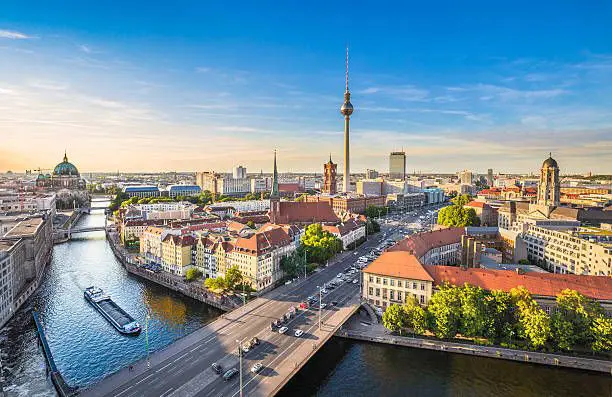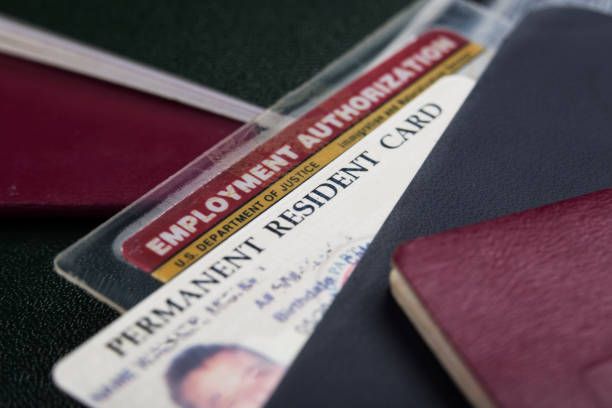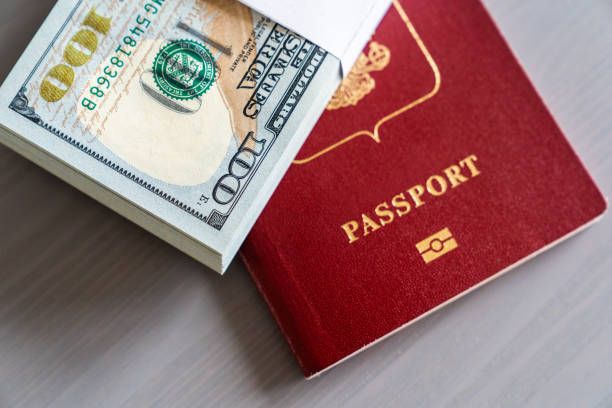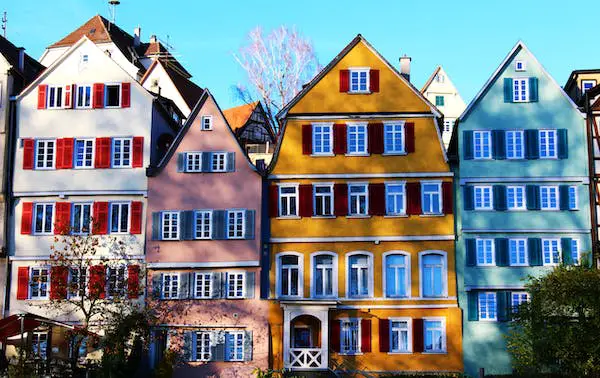Germany Work Permit 2023

With one of the lowest unemployment rates in Europe, a wide range of employment options, and multiple opportunities to advance professionally and gain experience, Germany is a great place to work. Many foreigners want to work in Germany so they can take advantage of the country's good wages and work-life balance.
Some people are fortunate enough to be able to travel to Germany and look for work without any restrictions, but others must adhere to stringent guidelines, such as acquiring a visa, in order to do so. However, in order to be able to work in Germany, you will require more than just a visa. But it is a place to start if you want to get there.
What you must do to obtain an employment visa and start working in Germany will be covered in this post.
Who Can Apply For Germany Work Permit?

To work in Germany, both a work/residence permit and work visa may be required. However, visa requirements vary and not everyone is subject to them, while all are subject to the residence/work permit requirement.
Citizens of EU/EEA, Switzerland, Liechtenstein, Norway, or Iceland do not need a work visa for employment in Germany, only a residence registration with a passport or valid ID after arrival.
Citizens of Australia, Israel, Japan, Canada, South Korea, New Zealand, or the USA do not need a work visa or job offer prior to entering Germany. They only need to apply for a residence permit at the Foreigners’ Office upon arrival in Germany.
If you're not a citizen of the countries listed, a work visa is required to enter and work in Germany. Upon arrival, a residence permit for work purposes must also be applied for.
How to Obtain a Work Visa for Germany

The process to obtain a work visa for Germany involves the following steps:
i. Securing a job offer from a German company.
ii. Obtaining a certificate of eligibility from the German Federal Employment Agency.
iii. Submitting a visa application at the German embassy or consulate in your home country.
iv. Attending an in-person interview and providing necessary documentation, including passport, proof of health insurance, and proof of financial means.
Note: The specific requirements and procedures may vary based on your country of origin and type of work visa. It is advisable to consult the German embassy or consulate in your home country for specific guidance.
Requirements of The Germany Work Visa
The requirements for a Germany work visa typically include:
i. A valid passport
ii. Proof of health insurance
iii. Proof of sufficient financial means to support yourself during your stay in Germany
iv. Proof of job offer and qualifications required for the job
v. Criminal record check or certificate of good conduct
vi. Proof of accommodation in Germany
vii. Application fee
Note: The specific requirements and procedures may vary based on your country of origin and type of work visa. It is advisable to consult the German embassy or consulate in your home country for specific guidance.
Germany Work Visa Application Process
The process to apply for a Germany work visa typically involves the following steps:
i. Securing a job offer from a German company and obtaining a certificate of eligibility from the German Federal Employment Agency.
ii. Submitting a visa application at the German embassy or consulate in your home country, along with all required documents such as passport, proof of health insurance, financial means, job offer and qualifications, criminal record check, proof of accommodation, and application fee.
iii. Attending an in-person interview and providing biometric data (e.g. fingerprints).
iv. Waiting for processing of the visa application, which can take several weeks.
v. Collecting the issued visa and, if necessary, the residence permit upon arrival in Germany.
Note: The specific requirements and procedures may vary based on your country of origin and type of work visa. It is advisable to consult the German embassy or consulate in your home country for specific guidance.
Germany Work Visa Processing Time

The processing time for a Germany work visa varies and can take several weeks to several months, depending on several factors such as the workload of the German embassy or consulate, the completeness and accuracy of the submitted documents, and the type of work visa being applied for. It is advisable to check with the German embassy or consulate in your home country for specific processing times and to apply well in advance of your desired start date in Germany.
Germany Employment Visa Fee

The fee for a Germany employment visa typically varies based on the type of visa and the applicant's country of origin. The fee is usually paid at the time of submission of the visa application and is non-refundable, regardless of the outcome of the application.
It is advisable to check with the German embassy or consulate in your home country for specific fees, as they can change periodically. The fee may be paid in the local currency or in euros and can be paid by cash, credit card, or bank transfer.
Germany Work Visa Duration

The duration of a Germany work visa depends on the type of visa and the specific circumstances of the job offer. Some common types of work visas in Germany include:
Temporary work visa: This type of visa is usually issued for the duration of the job contract, up to a maximum of two years.
EU Blue Card: This type of visa is issued for a maximum of four years and can be renewed if the conditions for issuance remain fulfilled.
Highly skilled worker visa: This type of visa is issued for a maximum of five years.
It is advisable to check with the German embassy or consulate in your home country for specific information on the duration of the type of work visa being applied for. The duration of the visa may also be affected by changes in the job offer, such as an extension or termination of the contract.
How to Obtain a Residence Permit for Working in Germany

The process to obtain a residence permit for working in Germany typically involves the following steps:
i. Securing a job offer from a German company and obtaining a certificate of eligibility from the German Federal Employment Agency.
ii. Applying for a work visa at the German embassy or consulate in your home country, if necessary.
iii. Arriving in Germany and registering your place of residence with the local authorities.
iv. Submitting a residence permit application at the nearest Foreigners’ Office, along with all required documents such as passport, proof of health insurance, financial means, job offer and qualifications, criminal record check, proof of accommodation, and application fee.
v. Waiting for processing of the residence permit application, which can take several weeks.
vi. Collecting the issued residence permit from the Foreigners’ Office.
Note: The specific requirements and procedures may vary based on your country of origin and type of work visa. It is advisable to consult the German embassy or consulate in your home country or the nearest Foreigners’ Office in Germany for specific guidance.
Types of German Residence Permit
There are several types of work permits for Germany in 2023:
i. EU Blue Card: for highly skilled non-EU citizens
ii. Work visa for employment: for foreign nationals with a job offer from a German company
iii. ICT Card: for employees of international companies who are posted to Germany
iv. Skilled Worker Immigration: for in-demand occupations such as IT and engineering.
v. Self-employed Visa: for entrepreneurs and business owners.
Note: Specific eligibility criteria, documentation and application procedures apply for each type of work permit.
No visa is required for citizens of the following countries to work in Germany:
EU/EEA
Australia
Canada
Israel
Japan
The Republic of Korea,
New Zealand
Switzerland
USA
1. EU Blue Card: for highly skilled non-EU citizens
The EU Blue Card is a type of work and residence permit designed for highly skilled non-European Union (EU) citizens who wish to work and live in Germany. To be eligible for an EU Blue Card, you must meet the following criteria:
i. Have a university degree or equivalent qualifications.
ii. Have a valid job offer from a German employer with an annual salary of at least €50,800 (or a lower minimum salary defined by a specific sector).
iii. Pass a language test if the job requires a good knowledge of German.
With an EU Blue Card, you can work and live in Germany for up to four years, after which it can be renewed if the conditions for issuance remain fulfilled. The EU Blue Card also provides a path to long-term residency and eventually citizenship in Germany.
It is advisable to check with the German embassy or consulate in your home country or the nearest Foreigners’ Office in Germany for specific information on the requirements and procedures for obtaining an EU Blue Card.
2. Work Visa For Employment: For Foreign Nationals With a Job Offer From a German Company
A work visa for employment is designed for foreign nationals who have received a job offer from a German company and wish to work in Germany. To be eligible for a work visa for employment, you typically must meet the following requirements:
i. Have a valid job offer from a German company.
ii. Possess the necessary qualifications and professional experience for the offered job.
iii. Pass a language test if the job requires a good knowledge of German.
iv. Provide proof of health insurance coverage and sufficient financial means to support yourself during your stay in Germany.
v. Possess a valid passport and any other necessary travel documents.
The specific requirements and procedures for obtaining a work visa for employment may vary based on your country of origin. It is advisable to check with the German embassy or consulate in your home country or the nearest Foreigners’ Office in Germany for specific guidance on the application process and required documents.
Once the visa is granted, you can enter Germany to start work and then apply for a residence permit for work purposes. The work visa for employment is usually valid for the duration of your employment contract, up to a maximum of five years.
3. ICT Card: for employees of international companies who are posted to Germany
The Intra-Corporate Transfer (ICT) Card is a type of work and residence permit designed for employees of international companies who are posted to Germany for work purposes. To be eligible for an ICT Card, you must meet the following criteria:
i. Be a third-country national (non-European Union (EU) or European Economic Area (EEA) citizen).
ii. Be employed by an international company that operates in Germany and another country.
iii. Be posted to Germany for a specific project or assignment.
iv. Have a job offer that is in line with your qualifications and professional experience.
The ICT Card is valid for the duration of your assignment in Germany, up to a maximum of three years. It allows you to work and live in Germany for the duration of your assignment, without the need for a separate work or residence permit. After your assignment, you may be able to return to your home country or move to another EU member state for work.
It is advisable to check with the German embassy or consulate in your home country or the nearest Foreigners’ Office in Germany for specific information on the requirements and procedures for obtaining an ICT Card.
4. Skilled Worker Immigration: for in-demand occupations such as IT and engineering.
The Skilled Worker Immigration program is a type of work and residence permit for foreign nationals who wish to work in Germany in certain in-demand occupations such as IT and engineering. The program is designed to attract highly skilled workers from around the world to come and work in Germany. To be eligible for Skilled Worker Immigration, you must meet the following criteria:
i. Have a valid job offer from a German company in a field that is in demand, such as IT or engineering.
ii. Possess the necessary qualifications and professional experience for the offered job.
iii. Pass a language test if the job requires a good knowledge of German.
iv. Provide proof of health insurance coverage and sufficient financial means to support yourself during your stay in Germany.
v. Possess a valid passport and any other necessary travel documents.
The specific requirements and procedures for obtaining a Skilled Worker Immigration permit may vary based on your country of origin. It is advisable to check with the German embassy or consulate in your home country or the nearest Foreigners’ Office in Germany for specific guidance on the application process and required documents.
Once the visa is granted, you can enter Germany to start work and then apply for a residence permit for work purposes. The Skilled Worker Immigration permit is usually valid for the duration of your employment contract, up to a maximum of five years.
5. Self-employed Visa: for entrepreneurs and business owners.
The Self-employed Visa is a type of work and residence permit designed for entrepreneurs and business owners who wish to start their own business in Germany. This visa is intended for individuals who have an innovative business idea and plan to set up and run a new business in Germany. To be eligible for a Self-employed Visa, you must meet the following criteria:
i. Have a viable and innovative business idea and plan to start a new business in Germany.
ii. Provide proof of sufficient financial means to support yourself and your business for at least the first year of operation.
iii. Have relevant education, professional experience and entrepreneurial skills to successfully run a business in Germany.
iv. Pass a language test if the business requires a good knowledge of German.
v. Possess a valid passport and any other necessary travel documents.
The application process for a Self-employed Visa typically involves submitting a detailed business plan, proof of financial resources, and other relevant documents to the German embassy or consulate in your home country. The German authorities will then assess the viability of your business plan and decide whether to grant you a visa.
Once you have received the visa, you can enter Germany and start the process of setting up your business. After you have established your business, you can apply for a residence permit for self-employment purposes. The Self-employed Visa is usually valid for the duration of your business plan, up to a maximum of five years. It is important to note that the German authorities may revoke your visa if you fail to meet the requirements for self-employed individuals, such as achieving a minimum level of income or making progress towards your business goals.
